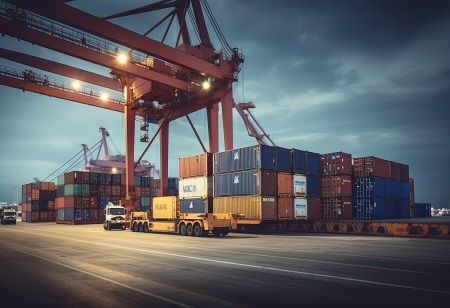
- Korean manufacturers set up factories in Malaysia, Indonesia, and Vietnam.
- Investments include Hyundai-LG’s $1.1B EV battery plant in Indonesia.
- Firms seek lower labor costs and stability amid US-China trade tensions.
Manufacturers from South Korea are expanding their footprint in Southeast Asia by establishing factories and export centers in Malaysia, Indonesia, and Vietnam, aiming to lessen reliance on China and adapt to changing global trade regulations.
The initiative indicates increasing geopolitical risks and the appeal of reduced labor costs in a region that has become one of the globe's most appealing substitutes for Chinese manufacturing. Governments in Southeast Asia are vying for investments through tax incentives and fast-tracked permits, as free trade agreements have reduced obstacles within the region.
Simmtech, a manufacturer of semiconductor substrates, runs a packaging facility in Penang, Malaysia, attracting international chip producers such as Intel and Micron. Its subsidiary, Sustio, finalized a $77 million expansion of the facility earlier this year.
Hyundai Motor and LG Energy Solution are constructing Indonesia’s first battery-cell facility in Karawang, close to Jakarta, with an investment of $1.1 billion. The plant, anticipated to begin operations in 2025, will generate as much as 10 gigawatt-hours each year, mainly for electric vehicles in South Korea and India.
Also Read: Suzlon to Run All Manufacturing Units on 100% Renewables by 2030
Steel and chemical manufacturers are also advancing rapidly. POSCO established cold-rolled and hot-rolled steel facilities in Vietnam, whereas Lotte Chemical strengthened its position in Malaysia by purchasing Titan Chemicals.
A portion of the attraction is political. In contrast to China, Southeast Asian countries are mostly shielded from the rising trade and technology conflict between Washington and Beijing. Regional agreements such as the Association of Southeast Asian Nations Free Trade Agreement and the Regional Comprehensive Economic Partnership have reduced tariffs on trade within Asia even more.
Cost effectiveness continues to be a critical element. Vietnam's factory employees receive an average monthly wage of $320, which is fewer than 50% of the average in China. In Indonesia, labor expenses are 30 to 50 percent cheaper than in South Korea in various industrial sectors, providing cost reductions for labor-intensive production.

